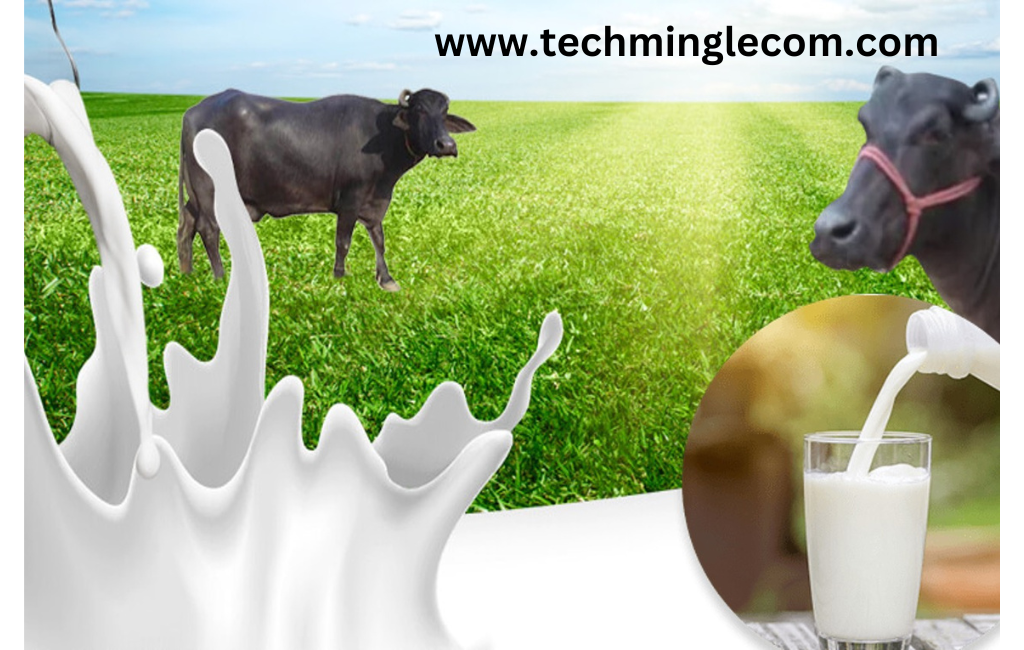
Buffalo Milk:100% A Comprehensive Guide
Introduction to Buffalo Milk
What is Buffalo Milk?
Buffalo- milk, derived from water buffaloes, is a rich, creamy alternative to cow’s milk that has been a staple in various cultures for centuries. Known for its distinctive taste and high nutritional value, buffalo -milk is gaining popularity worldwide.
Importance and Popularity
The significance of buffalo -milk stretches from its extensive use in traditional cuisines to its growing presence in modern diets. Its unique properties make it a preferred choice for many health-conscious individuals.
Nutritional Value of Buffalo Milk
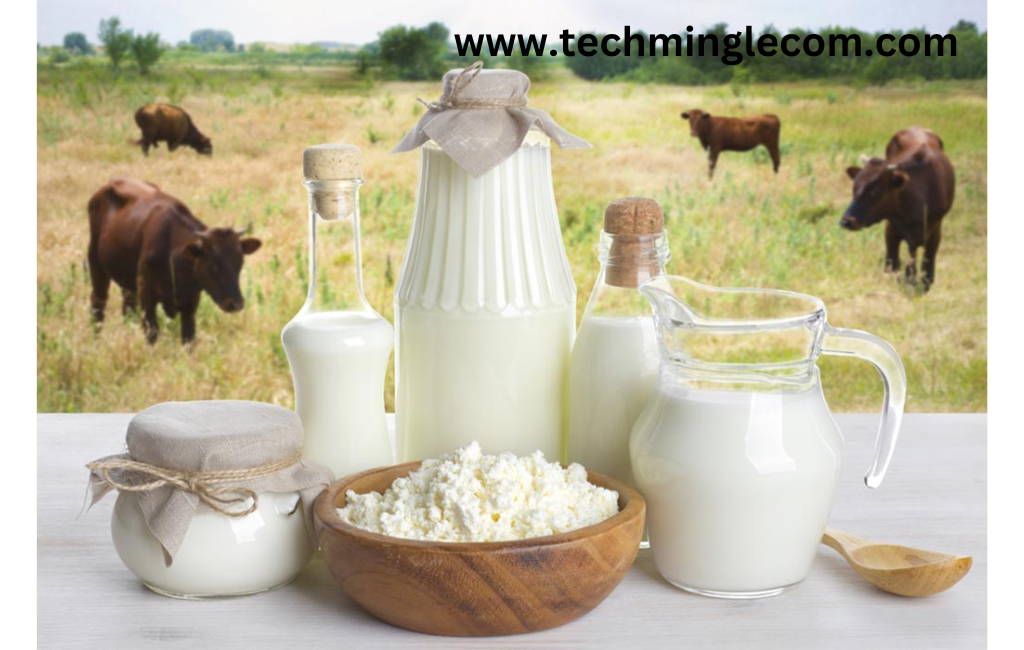
Comparison with Cow’s Milk
When comparing buffalo -milk to cow’s milk, the former stands out for its higher fat, protein, and calorie content. This makes it a nutrient-dense option suitable for various dietary needs.
Vitamins and Minerals
Buffalo -milk is packed with essential vitamins such as A, D, and E, along with minerals like calcium, magnesium, and phosphorus.These nutrients are vital for preserving overall health and well-being.
Protein and Fat Content
The protein content in buffalo- milk is significantly higher than in cow’s milk, making it an excellent source for muscle growth and repair. The higher fat content also contributes to its creamy texture and rich flavor
Health Benefits of Buffalo Milk
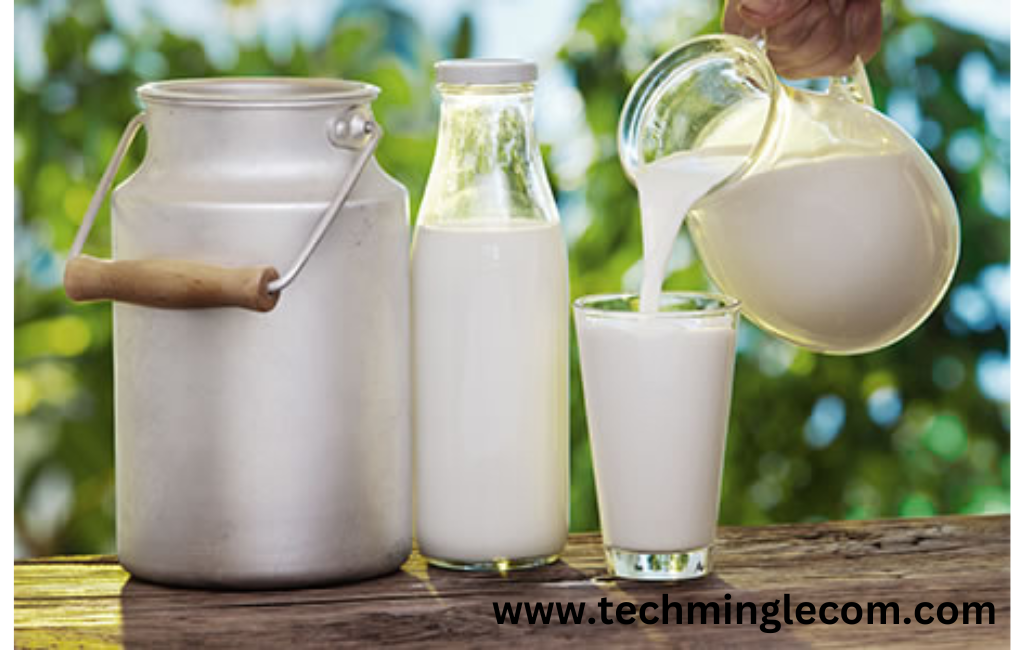
Rich in Calcium
Buffalo -milk is an excellent source of calcium, which is essential for maintaining strong bones and teeth. Regular consumption of buffalo -milk can help prevent conditions like osteoporosis and bone fractures. The high calcium content also supports muscle function, nerve transmission, and hormonal secretion.
Supports Immune System
Buffalo -milk contains bioactive compounds that enhance the immune system. These compounds help in the production of antibodies, which are crucial for fighting off infections and diseases. Additionally, the presence of antioxidants in buffalo -milk helps reduce oxidative stress and inflammation, further boosting immune health.
Beneficial for Heart Health
Despite its higher fat content, buffalo- milk contains healthy fats, including conjugated linoleic acid (CLA) and omega-3 fatty acids, which are known to improve heart health. These healthy fats help in maintaining balanced cholesterol levels by increasing the levels of good cholesterol (HDL) and reducing bad cholesterol (LDL). This can lead to a lower risk of cardiovascular diseases.
Aids in Weight Gain and Muscle Growth
Buffalo -milk is calorie-dense and rich in protein, making it an ideal choice for individuals looking to gain weight or build muscle. The high protein content aids in muscle repair and growth, while the calorie density provides the necessary energy for physical activities and recovery. Athletes and bodybuilders can benefit from incorporating buffalo- milk into their diets to meet their nutritional needs.
Promotes Digestive Health
Buffalo- milk contains a higher amount of beneficial probiotics compared to cow’s milk. These probiotics help in maintaining a healthy gut flora, improving digestion, and preventing gastrointestinal issues such as constipation, bloating, and diarrhea. The probiotics in buffalo -milk also enhance the absorption of nutrients, contributing to overall digestive health.
Supports Skin Health
The high vitamin and mineral content in buffalo- milk, including vitamins A and E, contributes to healthy skin. These vitamins act as antioxidants, protecting the skin from damage caused by free radicals and promoting cell regeneration. Regular consumption of buffalo- milk can lead to smoother, more hydrated skin and a reduction in the appearance of wrinkles and fine lines.
Provides Essential Nutrients
Buffalo- milk is rich in essential nutrients such as magnesium, phosphorus, and potassium, which are vital for various bodily functions. Magnesium supports muscle and nerve function, phosphorus is important for bone health, and potassium helps regulate blood pressure and fluid balance in the body.These nutrients are essential for sustaining overall health and well-being.
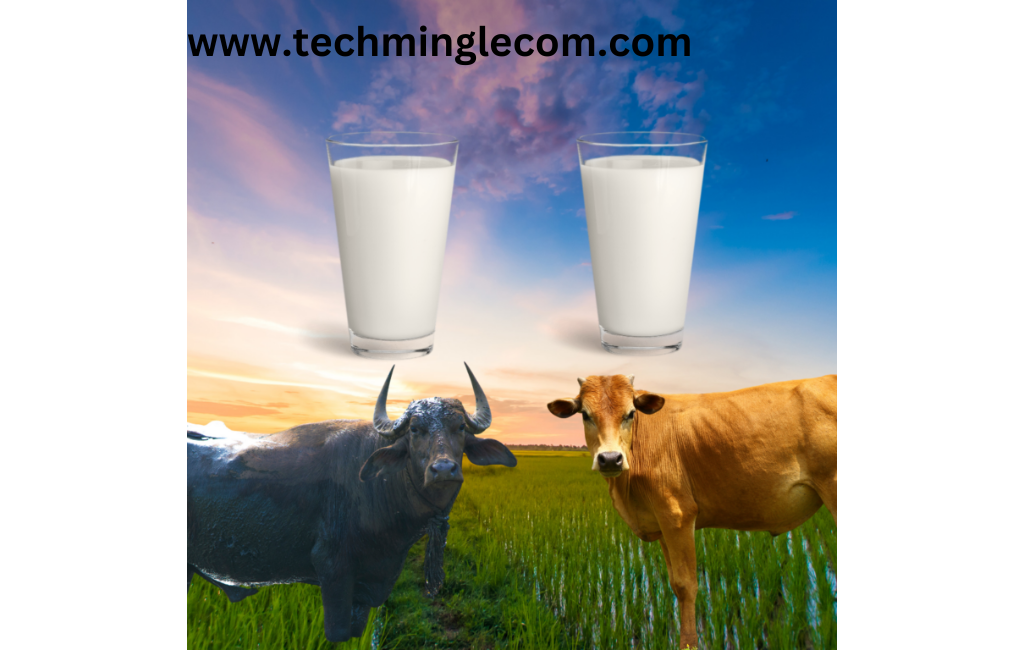
Improves Vision
The high vitamin A content in buffalo- milk is beneficial for eye health.Vitamin A is essential for maintaining good vision, preventing night blindness, and lowering the risk of age-related macular degeneration.Including buffalo- milk in your diet can help ensure adequate intake of this important vitamin.
Supports Infant Growth
Buffalo- milk can be a valuable addition to the diets of infants and young children, provided it is introduced at the appropriate age. Its high nutrient content supports growth and development, providing essential vitamins, minerals, and proteins required for a healthy start in life. However, it’s important to consult with a pediatrician before introducing buffalo- milk to infants.
Enhances Cognitive Function
Buffalo- milk contains various nutrients that support brain health, including vitamin B12, folate, and healthy fats. These nutrients are essential for cognitive function, memory, and overall brain health. Regular consumption of buffalo -milk can contribute to improved mental clarity and reduced risk of cognitive decline as you age.
Buffalo Milk in Different Cultures
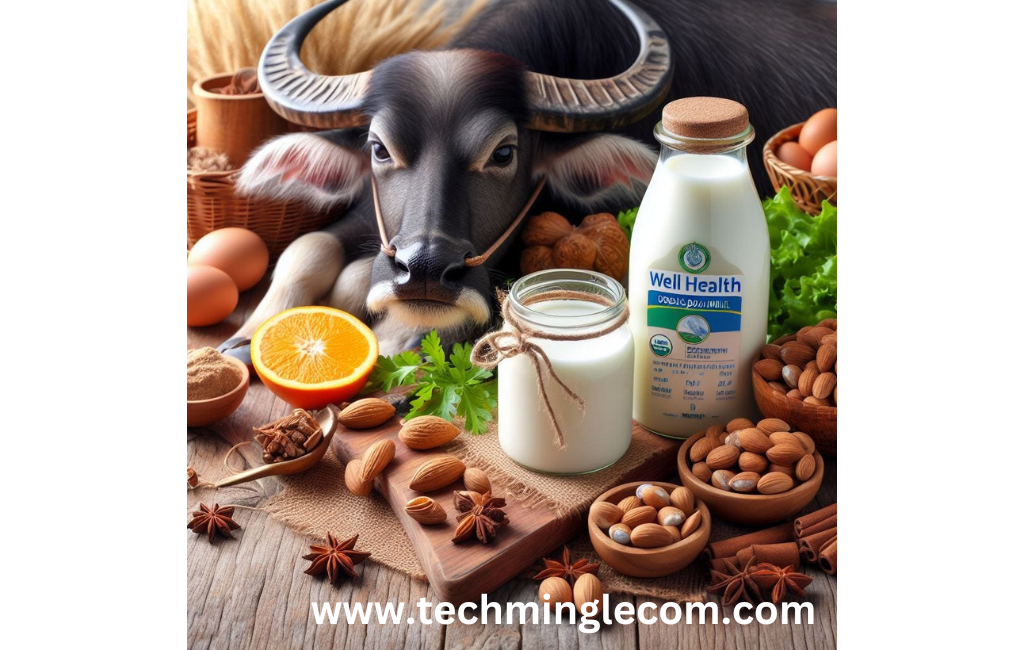
Usage in Indian Cuisine
In India, buffalo- milk is a cornerstone of dairy products like paneer (Indian cottage cheese), yogurt, and sweets. Its thick consistency and rich taste make it ideal for traditional recipes.
Popularity in Mediterranean Countries
Countries in the Mediterranean region utilize buffalo -milk in various dishes, especially in the production of high-quality cheeses like mozzarella di bufala.
Buffalo Milk Products in Italy
Italy is renowned for its buffalo mozzarella, a delicacy appreciated globally for its texture and flavor. This cheese is a testament to the versatility and excellence of buffalo-milk.
How Buffalo Milk is Produced
Buffalo Farming Practices
Buffaloes are typically raised in environments that allow for free grazing, contributing to the quality of the milk. Sustainable farming practices ensure the well-being of the animals and the quality of the milk produced.
Milking Process
The milking process of buffaloes is similar to that of cows but requires careful handling to maintain the milk’s quality. Hygienic practices are essential to prevent contamination.
Quality Control
Strict quality control measures are implemented to ensure that the milk meets safety standards and retains its nutritional value from farm to table.
Buffalo Milk Products
Cheese Varieties
Buffalo -milk is used to produce a variety of cheeses, including mozzarella, ricotta, and provolone. These cheeses are known for their rich flavor and creamy texture.
Butter and Ghee
Butter and ghee made from buffalo -milk are highly valued for their taste and nutritional benefits. Ghee, in particular, is a staple in many traditional diets.
Yogurt and Kefir
Fermented products like yogurt and kefir made from buffalo- milk are rich in probiotics, supporting gut health and digestion.
Desserts and Sweets
Buffalo -milk is used in a range of desserts, from creamy puddings to traditional sweets like gulab jamun and rasgulla in Indian cuisine.
Environmental Impact
Sustainable Farming Practices
Buffalo farming can be more sustainable than cow farming, with lower methane emissions and better land utilization. Practices like rotational grazing contribute to environmental conservation.
Comparison with Cow Farming
Buffaloes require less intensive farming practices compared to cows, resulting in a smaller ecological footprint. This makes buffalo- milk a more environmentally friendly choice.
Eco-Friendly Packaging
Many producers are adopting eco-friendly packaging solutions for buffalo- milk, reducing plastic waste and promoting sustainability.
Buffalo Milk for Lactose Intolerant Individuals
Lactose Content
Buffalo -milk contains slightly less lactose than cow’s milk, making it easier to digest for some lactose-intolerant individuals. However, it is still not suitable for those with severe lactose intolerance.
Alternatives and Substitutes
For those who cannot consume buffalo -milk, lactose-free alternatives and plant-based substitutes like almond or soy milk are available.
Buffalo Milk vs. Plant-Based Milks
Nutritional Comparison
While plant-based milks are lower in calories and fat, buffalo -milk offers higher protein and essential nutrients. Each has its place in a balanced diet, depending on individual nutritional needs.
Taste and Texture
Buffalo -milk’s creamy texture and rich taste set it apart from plant-based milks, which can be thinner and less flavorful.
Environmental Considerations
Both buffalo- milk and plant-based milks have their environmental impacts. Buffalo -milk production is more sustainable than cow milk but less so than some plant-based options.
Common Myths about Buffalo Milk
Myth: Buffalo Milk is Too Fatty
While buffalo- milk is higher in fat, it contains healthy fats beneficial for heart health and overall nutrition when consumed in moderation.
Myth: Buffalo Milk is Not as Nutritious as Cow’s Milk
Buffalo -milk is actually more nutrient-dense, providing higher levels of protein, vitamins, and minerals compared to cow’s milk.
Ways to Incorporate Buffalo Milk into Your Diet
Recipes and Ideas
Buffalo- milk can be used in various recipes, from smoothies and shakes to soups and baked goods.Its adaptability makes it an excellent complement to any dietary regimen.
Cooking Tips
When cooking with buffalo -milk, its high fat content should be considered, as it can alter the texture and richness of dishes. It’s perfect for creamy sauces and rich desserts.
Where to Buy Buffalo Milk
Local Farms and Markets
Many local farms and markets offer fresh buffalo- milk. Supporting these sources can ensure you get high-quality milk while supporting sustainable farming practices.
Online Retailers
Buffalo- milk products are also available online, providing convenient access to a range of dairy products made from buffalo -milk.
Buffalo Milk for Pets
Benefits for Dogs and Cats
Buffalo -milk can be a nutritious addition to your pet’s diet, providing essential nutrients and a rich source of protein.
How to Introduce it to Their Diet
Introduce buffalo -milk to pets gradually, mixing it with their regular food to avoid digestive issues. Ensure it is given in moderation.
Storing and Handling Buffalo- Milk
Shelf Life
Buffalo- milk has a shorter shelf life compared to cow’s milk due to its higher fat content. It’s best consumed fresh or stored properly to maintain its quality.
Best Practices for Storage
Store buffalo -milk in a cool, dark place and keep it refrigerated.Use sealed containers to avoid contamination and preserve freshness.
Conclusion
Buffalo- milk is a nutritious, versatile, and environmentally friendly alternative to cow’s milk. Its rich flavor, high nutritional value, and numerous health benefits make it an excellent choice for a variety of dietary needs. Whether used in cooking, consumed on its own, or incorporated into pet diets, buffalo- milk offers something for everyone. Give it a try and enjoy the unique benefits it has to offer.
FAQs
Is buffalo -milk safe for infants?
Buffalo- milk is not recommended for infants under one year due to its high protein and fat content, which can be difficult for young digestive systems to process.
Can I freeze buffalo -milk?
Yes, buffalo- milk can be frozen, but it may affect the texture. Thaw it slowly in the refrigerator before use to maintain its quality.
How does buffalo -milk taste compared to cow’s milk?
Buffalo milk is creamier and richer than cow’s milk, with a slightly sweet and nutty flavor.
Is buffalo -milk more expensive?
Buffalo milk can be more expensive due to its lower production volume and the care required in its farming and processing.
Can buffalo- milk cause allergies?
While less common than cow’s milk allergies, some individuals may still be allergic to buffalo milk. It’s essential to consult with a healthcare provider if you suspect an allergy.


